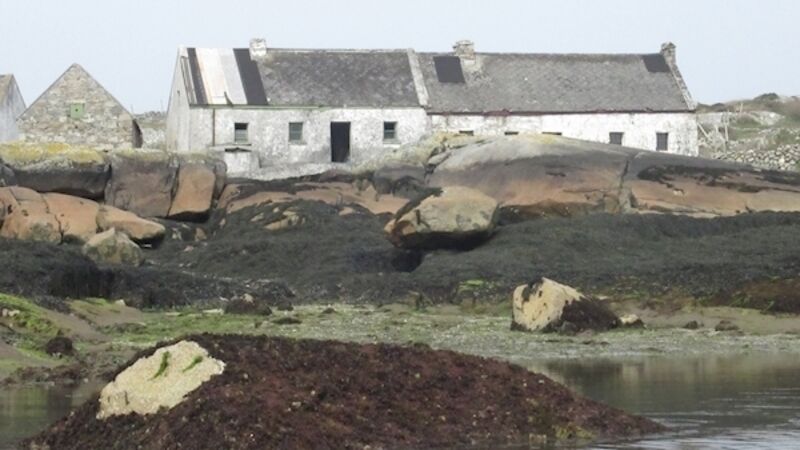Islands of Ireland: Inisherk, fire in the water

Who would have thought that the scum of fermented barley would prove so attractive a substance?
Someone, somewhere in the mists of time discovered that if you distil said scum, you will have concocted a beverage with a percentage of alcohol so high (up to 90%) that it could blow your britches off.













